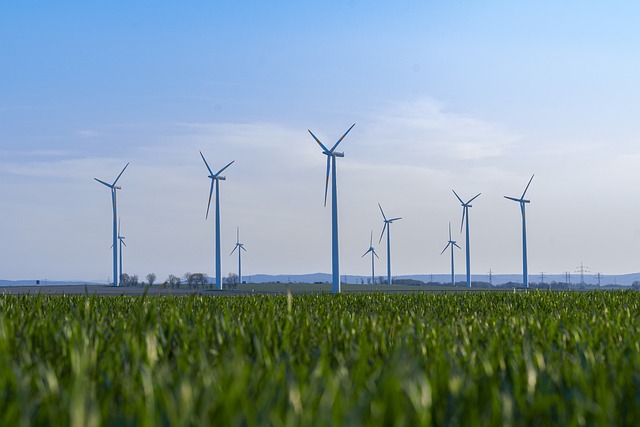Eco-friendly plumbing offers significant environmental benefits by reducing water wastage, energy consumption, and pollution. Key innovations include low-flow fixtures, tankless heaters, rainwater harvesting systems, and smart monitoring technologies. These options not only save money on utility bills but also support a greener future through sustainable practices and products certified for environmental impact. By adopting these eco-conscious plumbing solutions, homeowners can contribute to resource conservation, efficient water usage, and a more sustainable lifestyle.
Choosing green-certified plumbing products is a crucial step towards adopting eco-friendly practices in your home. This comprehensive guide explores various aspects of sustainable plumbing, including the benefits and environmental impact of going green. We delve into specific solutions like low-flow fixtures for reduced water consumption, tankless heaters for efficient hot water, rainwater harvesting for responsible water management, and sustainable materials for long-lasting installations. Additionally, we discuss smart monitoring systems to track efficiency and conservation efforts, enabling you to make informed choices that contribute to a greener future.
- Understanding Eco-Friendly Plumbing: The Benefits and Impact
- Low-Flow Fixtures: Reducing Water Consumption at Home
- Tankless Heaters: Efficient Hot Water Solutions
- Rainwater Harvesting: A Sustainable Approach to Water Management
- Choosing Sustainable Materials for Long-Lasting Plumbing
- Smart Monitoring Systems: Tracking Efficiency and Conservation
Understanding Eco-Friendly Plumbing: The Benefits and Impact

Plumbing plays a significant role in our daily lives and has a substantial environmental impact. Traditional plumbing systems contribute to water wastage, energy consumption, and pollution due to the use of non-sustainable materials. However, embracing eco-friendly plumbing offers numerous benefits for both homeowners and the planet. By choosing green-certified products, you’re taking a step towards reducing your carbon footprint and preserving natural resources.
Eco-friendly plumbing encompasses various innovative solutions like low-flow fixtures that significantly cut water usage without compromising performance, tankless heaters which provide hot water on demand, eliminating the energy waste associated with storage tanks, and rainwater harvesting systems that capture and reuse rainwater for irrigation or toilet flushing. Additionally, sustainable materials such as recycled or biodegradable pipes reduce environmental harm and contribute to a circular economy. Smart monitoring technologies further enable users to track their water usage, promoting conscious consumption and identifying potential leaks promptly. These eco-conscious practices not only save money on utility bills but also ensure a greener future for generations to come.
Low-Flow Fixtures: Reducing Water Consumption at Home
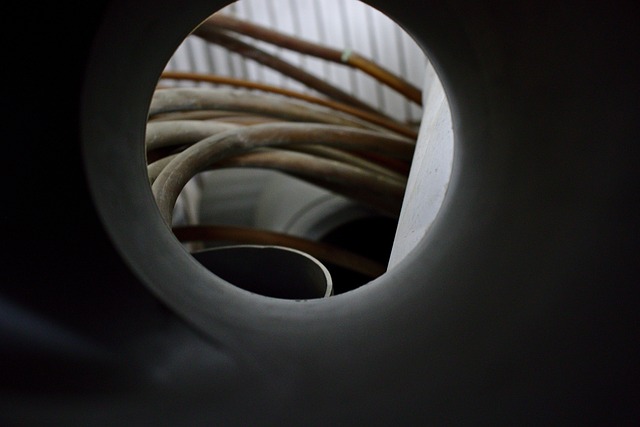
Low-flow fixtures are a simple yet powerful tool in the pursuit of eco-friendly plumbing. These innovative devices are designed to reduce water consumption without compromising performance, making them a smart choice for homeowners looking to lower their environmental impact. By incorporating low-flow showerheads and faucets, you can significantly cut down on water usage, saving both money on utility bills and precious resources.
In addition to low-flow fixtures, other green plumbing options include tankless heaters, which eliminate the energy waste associated with keeping a hot water tank constantly heated. Rainwater harvesting systems offer another sustainable solution by collecting and storing rainwater for various household uses, from irrigation to toilet flushing. Moreover, choosing plumbing products made from recycled or sustainable materials contributes to a more circular economy, while smart monitoring technologies allow you to track and optimize your water usage, ensuring efficient and responsible home hydration.
Tankless Heaters: Efficient Hot Water Solutions
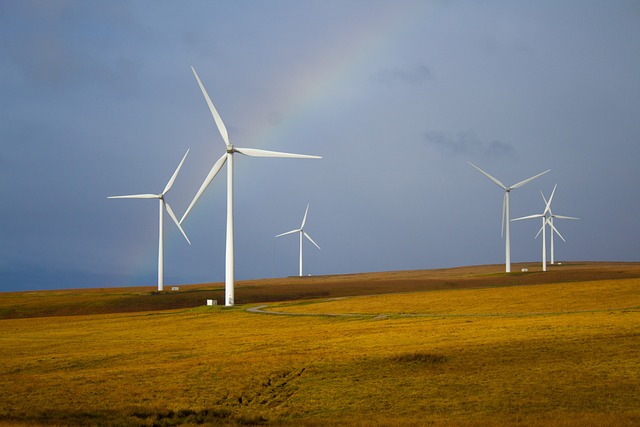
Tankless heaters represent a significant step forward in eco-friendly plumbing solutions. By eliminating the need for a storage tank, these devices significantly reduce water wastage, as hot water is heated on demand and in real-time. This not only conserves precious resources but also lowers energy consumption, making them an ideal choice for homeowners looking to incorporate low-flow fixtures into their plumbing systems.
Moreover, tankless heaters can be integrated with rainwater harvesting systems and smart monitoring technologies. Rainwater harvesting collects and stores rainwater for non-potable uses, such as gardening or flushing toilets, while smart monitoring allows users to track water usage patterns, identify leaks, and optimize heating settings. These innovations ensure that your plumbing remains both sustainable and efficient, contributing to a greener living space.
Rainwater Harvesting: A Sustainable Approach to Water Management
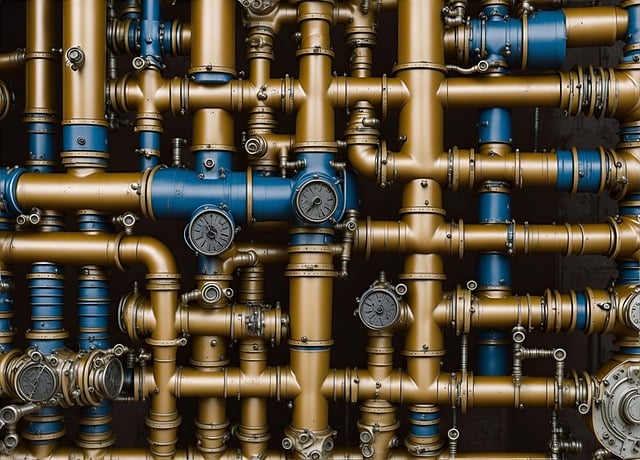
Rainwater harvesting is an innovative and sustainable approach to water management that aligns perfectly with eco-friendly plumbing practices. By capturing and storing rainwater, homeowners can significantly reduce their reliance on municipal water supplies. This ancient technique has seen a resurgence in popularity due to its numerous environmental and economic benefits. Low-flow fixtures and tankless heaters are integral components of this system, as they minimize water usage and maximize efficiency.
Implementing rainwater harvesting systems not only promotes the conservation of precious resources but also reduces energy consumption associated with water heating. Smart monitoring technologies further enhance sustainability by providing real-time data on water usage patterns, enabling users to make informed adjustments and optimize their plumbing systems for maximum efficiency.
Choosing Sustainable Materials for Long-Lasting Plumbing
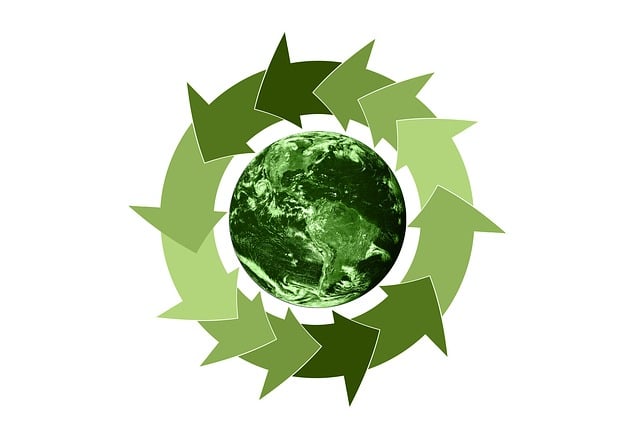
When it comes to plumbing, making environmentally conscious choices can have a significant impact on reducing water waste and energy consumption. One of the first steps is to select sustainable materials known for their longevity and minimal ecological footprint. Opting for eco-friendly plumbing involves choosing products labeled with green certifications, ensuring they meet specific environmental standards. For instance, low-flow fixtures like efficient showerheads and faucets reduce water usage without compromising performance.
Additionally, incorporating innovative technologies such as tankless heaters and rainwater harvesting systems can further enhance sustainability. Tankless heaters, for example, provide hot water on demand, eliminating the energy waste associated with keeping a tank heated constantly. Rainwater harvesting systems capture and reuse this precious resource, reducing both water bills and environmental impact. Smart monitoring devices also play a role by allowing users to track and control water usage, ensuring every drop is utilized efficiently.
Smart Monitoring Systems: Tracking Efficiency and Conservation
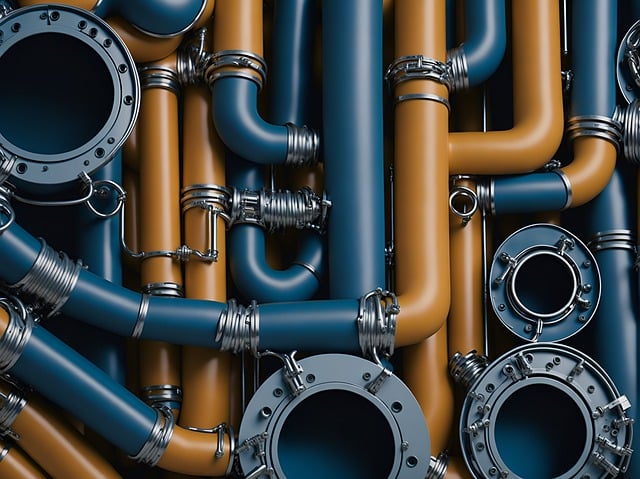
Smart Monitoring Systems play a pivotal role in transforming traditional plumbing into an eco-friendly and efficient system. By integrating technology with plumbing, homeowners can now track their water usage like never before. These advanced systems provide real-time data on water consumption, enabling users to identify areas where they can reduce waste and conserve precious resources. For instance, low-flow fixtures, such as aerator-equipped faucets and showerheads, are designed to minimise water usage without compromising performance.
Moreover, smart monitoring goes beyond individual fixtures. Tankless heaters, for example, offer on-demand hot water, eliminating the energy-intensive process of keeping a tank continuously heated. Combined with rainwater harvesting systems that collect and store rainwater for various purposes, these innovations showcase a comprehensive approach to sustainable materials and practices in plumbing. By leveraging smart monitoring, homeowners can make informed decisions to optimise their water usage, ultimately contributing to a greener lifestyle.
